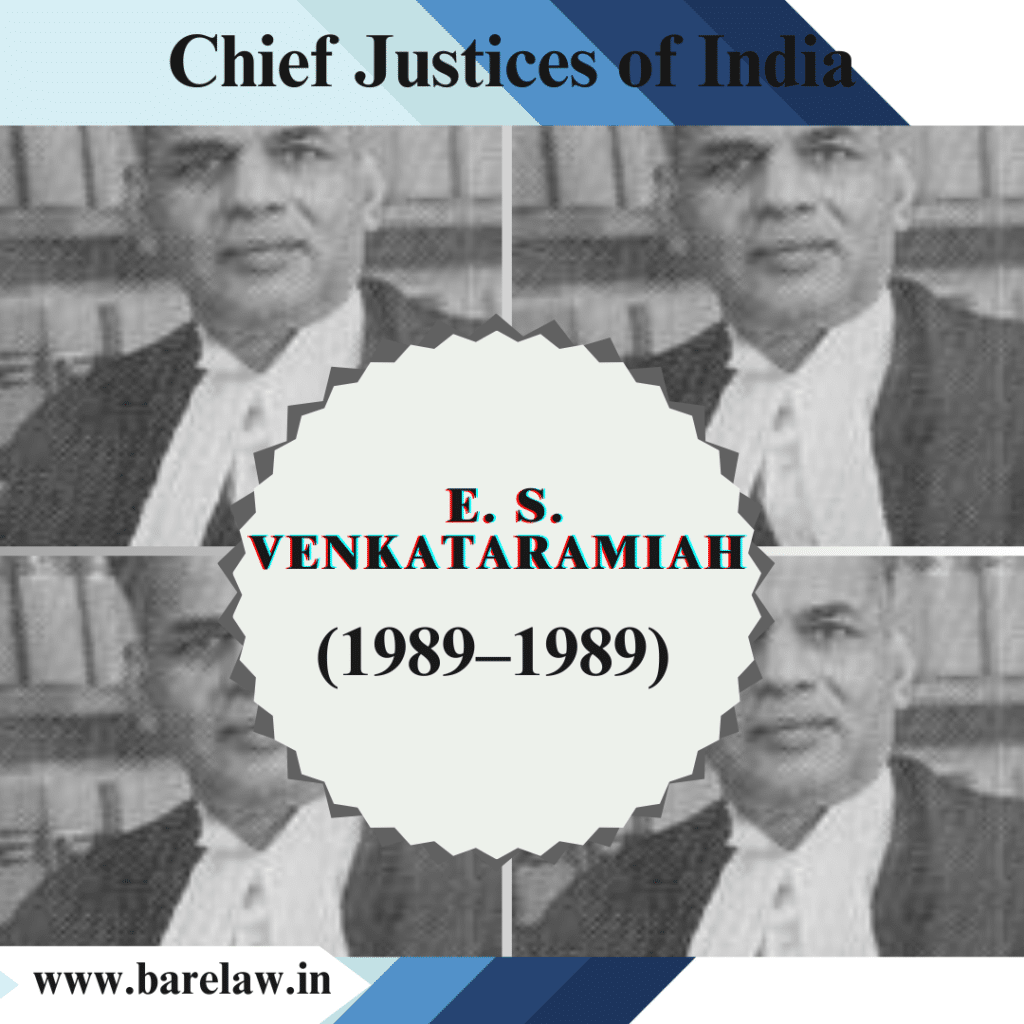
Table of Contents
E. S. Venkataramiah: A Brief Yet Impactful Tenure
E. S. Venkataramiah: A Brief Yet Impactful Tenure
Eragappa Satchidananda Venkataramiah, known as E. S. Venkataramiah, held the esteemed position of Chief Justice of India for a brief but significant period in 1989. His tenure, though short-lived, left an indelible mark on the Indian judiciary. In this article, we will explore the key aspects of Chief Justice E. S. Venkataramiah’s brief yet impactful stint at the helm of the Indian judiciary.
A Short-Lived Tenure
Chief Justice E. S. Venkataramiah’s tenure as the head of the Indian judiciary is one of the shortest in the history of the Supreme Court of India. His service to the nation in this capacity lasted only a few days in June 1989. However, the brevity of his tenure does not diminish its significance, as Chief Justice Venkataramiah made crucial contributions during his brief period in office.
Early Life and Legal Career
Born on October 18, 1920, in Karnataka, E. S. Venkataramiah embarked on a distinguished legal career that eventually led him to the highest judicial office in India. Prior to his appointment as Chief Justice, he had a notable career as a judge in various high courts.
Stewardship of the Judiciary
Despite his brief tenure, Chief Justice Venkataramiah demonstrated unwavering commitment to the principles of justice, fairness, and the rule of law. His dedication to upholding the Constitution and ensuring that justice was accessible to all segments of society was evident during his time as Chief Justice.
Contributions and Judicial Decisions
- Efficiency and Case Management: Chief Justice Venkataramiah’s tenure saw an emphasis on improving the efficiency of the Indian judiciary. He advocated for the timely disposal of cases and the streamlining of court procedures to reduce delays in the justice system. His efforts laid the groundwork for subsequent initiatives aimed at expediting the legal process in India.
- Access to Justice: Venkataramiah was a staunch advocate for increasing access to justice for all citizens, including those from marginalized and underprivileged backgrounds. He believed that the judiciary should be an institution where every citizen could seek redress and protection of their rights, regardless of their socio-economic status.
- Judicial Ethics: During his short tenure, Chief Justice Venkataramiah emphasized the importance of maintaining the highest standards of judicial ethics. He urged his fellow judges to act with integrity, impartiality, and fairness in all their proceedings, setting an example for the legal community.
Legacy and Influence
Although Chief Justice Venkataramiah’s time in office was remarkably brief, his contributions to the Indian judiciary left a lasting impact. His focus on efficiency, access to justice, and judicial ethics continued to shape the priorities of the judiciary in the years that followed. Many of his principles and recommendations were adopted in subsequent judicial reforms, leading to a more responsive and accessible legal system in India.
Conclusion
Chief Justice E. S. Venkataramiah’s tenure may have been one of the shortest in the history of the Indian judiciary, but it was characterized by a dedication to justice, efficiency, and ethical conduct. His brief stint as Chief Justice left a profound impact on the way the Indian judiciary functions, emphasizing the importance of delivering timely justice and upholding the principles enshrined in the Constitution.
In the annals of India’s legal history, Chief Justice Venkataramiah’s legacy serves as a reminder that the impact of a judicial leader is not solely measured by the duration of their tenure but by the principles and values they uphold during their time in office. His contributions continue to resonate within the Indian judicial system, influencing the pursuit of justice and the protection of rights for all citizens.





